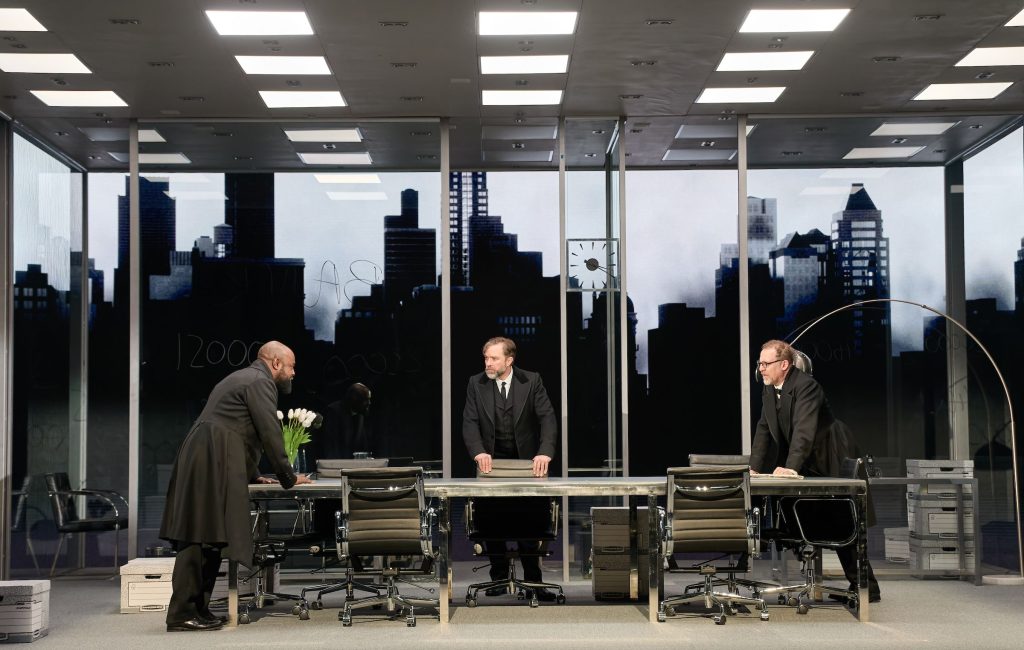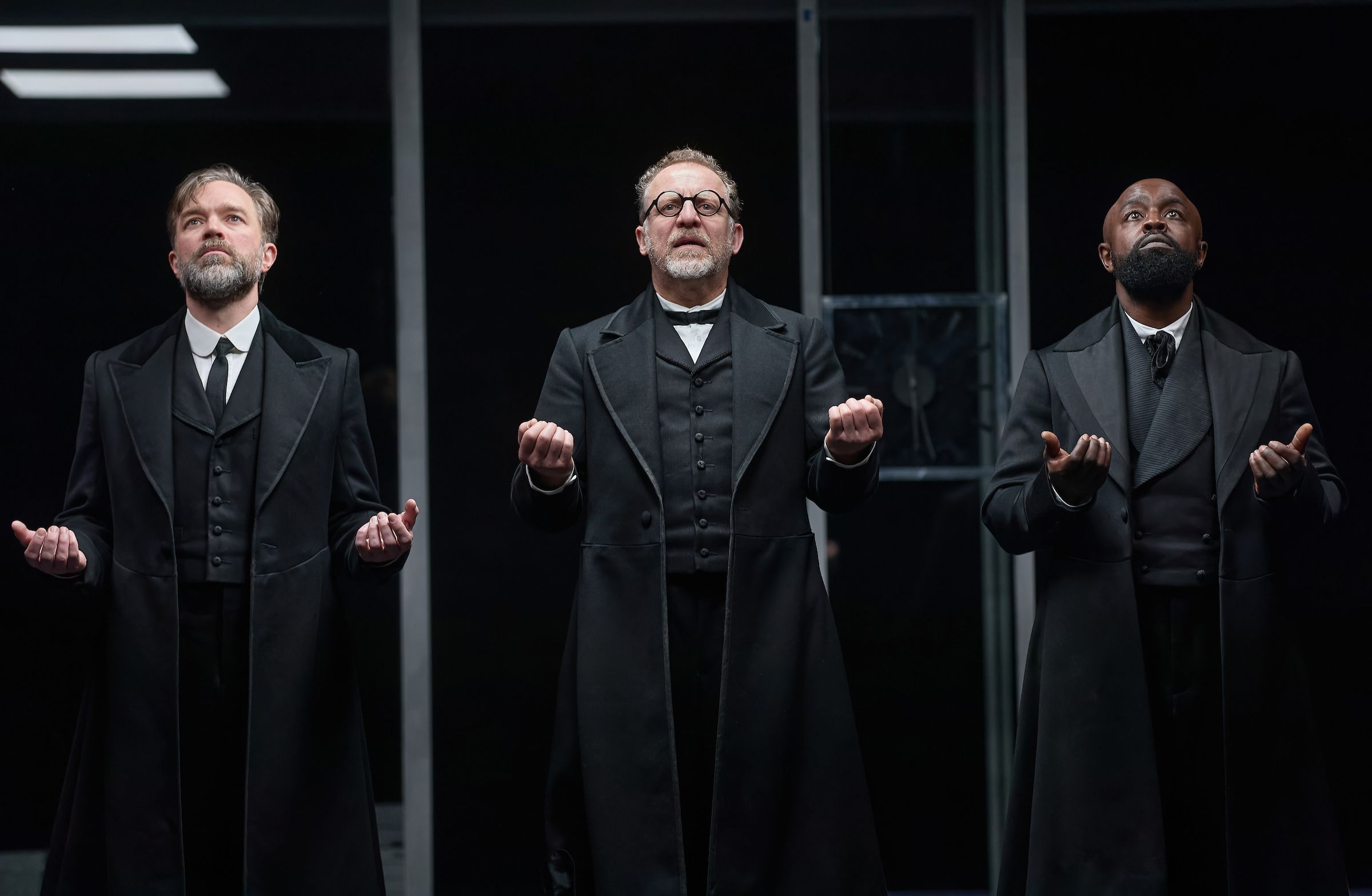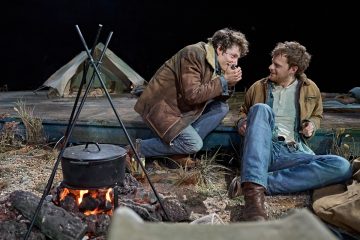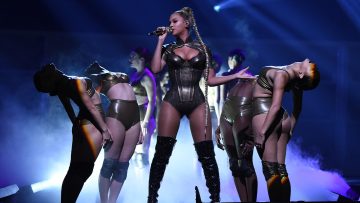★★★★★
For a cautionary tale about the power of belief, it’s nice to see The Lehman Trilogy wastes no time in using every theatrical device in the book.
Cardboard packing boxes, symbolic of Lehman Brothers’ collapse in 2008, form everything from lecterns to lampposts. Sleek glass walls become canvases on which three actors plan and plot their expanding business empire. The cast (Michael Balogun, Hadley Fraser, Nigel Lindsay) swap between multiple roles constantly, while a revolving stage pulls the story from a tiny Alabama shopfront to a New York office and back again. For the highest-budget stage on the West End, it certainly looks impressive.
What’s more remarkable, though, is how well it all works. Sam Mendes’ version of Stefano Massini’s play is a technical marvel. It’s blockbuster theatre with a clarity that wholly justifies its lofty ambitions.
A three-part, three-hour dissection of America’s financial system might not sound like the premise for an absorbing evening. But Mendes tells the story with a practical skill that dominates the stage, from the Lehmans’ humble beginnings to their (spoiler alert) high-profile demise.

Michael Balogun, Hadley Fraser and Nigel Lindsay star in The Lehman Trilogy (credit: Mark Douet)
The Lehman Trilogy opens with Henry Lehman, oldest of the titular brothers, stepping off the Staten Island ferry in 1844, and ends with the fall of his empire a century-and-a-half later. Part The Big Short, part The Godfather Part II, you’ll find few convoluted explanations of financial dealings here. Instead, the triumph of Stefano Massini’s script is the way it turns the famously complicated financial system the Lehmans inadvertently built into straightforward, human terms.
Relationships between fathers, sons, brothers and the growing cast of outsiders brought into the fold all play out as clearly as a kitchen-sink drama—just with a few more explanations of bond markets. The clarity of storytelling on display is nothing short of astonishing.
It’s helped by the central acting trio, who narrate the tale (as the company’s founders, Henry, Emmanuel and Mayer) while also taking on every other speaking role. It’s a convoluted setup, and one which could easily be fumbled. But in their hands, each part is characterised so quickly that there’s never any doubt which of the dozens of characters is involved in the tale at any moment. As a feat of endurance, at over three hours of constant, very physical performance, it’s insanely impressive in its own right.
Despite the inter-personal drama, of course, it’s still hard to avoid being overcome by the scale of the story the ensemble are telling. In the first act, the tale’s pace feels like the slightly sluggish opening of an epic saga. Perhaps Mendes’ most significant challenge, which he overcomes well, is in keeping this introduction compelling.
Still, the story does come into its own from the second act onwards. The steadily quickening tempo mirrors Lehman Brothers’ transition from fabric store to an investment bank (and whatever it actually does). Then, in the final half-hour, it unfolds with the deliberate inevitability of a Greek tragedy.
In many ways, The Lehman Trilogy is a play of contradictions. Epic and intimate, grand and simple all at once, its a tale told with the confidence its titular bank inspired. For high-concept, aspirational theatre at its finest, it’s a combination it’s impossible to turn down.





